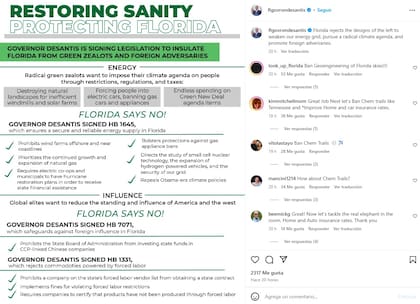
Florida Governor Signs Law Limiting Ethics Investigations
Introduction
Florida Governor Ron DeSantis recently signed a measure that has been widely opposed by government watchdog organizations. The measure prohibits ethics investigations from being launched until they are prompted by a complaint from someone with personal knowledge of the alleged wrongdoing. In this editorial, we examine the potential effects of this law on local ethics laws in Florida.
Background
The measure (SB 7014) allows only complaints from someone with personal knowledge of alleged wrongdoing. It is viewed by government watchdog organizations as a potential threat to ethics laws in Florida. Supporters claim that it serves to protect elected officials from frivolous complaints that could discredit them, especially in election years.
Opinion
The signing of the measure is a contentious issue. Those who oppose the change argue it would raise the bar on ethics complaints to impractical heights. It is unlikely that a witness to wrongdoing would be willing to publicly identify themselves by name and file a complaint under oath, as the new law requires. Anything short of personal knowledge would be considered hearsay. As a result, state and local ethics commissioners would be barred from investigating alleged violations.
Negative Effects on Public Interest
The signing of this law sets a negative precedent for the people of Florida. Prohibiting investigations into ethics violations sends the wrong message to those in positions of power. Rather than holding them accountable, it dismisses the possibility of their misdeeds being looked into. This affects not only the perception of the people of Florida but also outside observers looking into the state’s politics.
Potential Consequences
This measure could have far-reaching consequences in its restriction on ethics investigations. With only personal knowledge complaints being allowed, there is less scope for scrutiny of potential violations. This creates a lack of transparency in the political process and can lead to further corruption. Additionally, complaints based on investigative reports that appear in the media are eliminated. This leaves no room for media reports to serve as a watchdog for corrupt behavior.
Conclusion
The recently signed measure by Governor DeSantis limiting ethics investigations is a contentious issue. It has been viewed by many organizations as potentially undermining state ethics laws. With the partial removal of transparency and public scrutiny from the political process, this law has the potential to enable corruption and reduce trust in the political process. It is essential to strive for greater accountability for elected officials rather than restrict independent investigations into ethics violations.
Originally Post From https://www.tallahassee.com/story/news/local/state/2024/06/21/desantis-signs-bill-that-makes-it-harder-to-file-ethics-complaints/74101104007/
Read more about this topic at
Ethics Laws – Ethics
GUIDE to the SUNSHINE AMENDMENT and CODE of …

